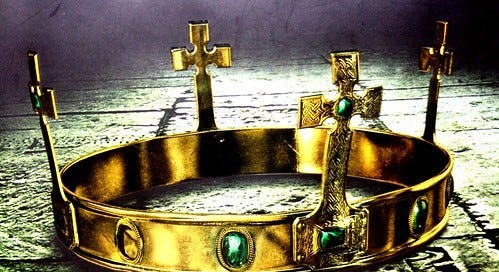God should be the one we serve; the one whose rules we follow; the one we fear; the one we worship. He is our Ruler and King. He protects and .provides. He cares for us like no man on earth ever could.
Unjust Judges - 1 Samuel 8:1-3
Samuel had two sons, Joel and Abijah. Joel was the oldest, and his name meant “The Lord is God.” Abijah was the youngest and his name meant “My Father is the Lord.” Samuel had been judging the land for all his adult life, so when he was around 60 years old, Samuel made his sons judges. This had never been done before. All the other judges had been appointed directly by God. Samuel seemed to be following the way of the other nations who had a dynasty. But that is not what God intended. By choosing their judges directly, the Lord could choose the man best for the job and not the next one in line.
Samuel’s sons were a perfect example of why this was not an inherited position. Like Eli’s sons, Joel and Abijah were nothing like their father. Despite their names, they were not fair judges, and they seemed to care more about themselves than the people. They allowed themselves to be corrupted by money and power. They did not render justice, but whatever ruling benefited them the most. They had violated God’s only requirement for their position, which was to be fair. An unfair judge was worse than no judge at all! Deuteronomy 16:19
Because they were so far from their father’s ways, Beersheba was the last place they should have been sent to judge. Since it was almost 60 miles south of Samuel’s home in Ramah, they had no oversight. Also, it was not centrally located in Israel. Just southwest of what is now the West Bank, Beersheba was in the center of Simeon’s land, which was in the southern part of their inhabited land at that time. So, they were too far away from their father, and from the rest of the nation. This all made it easier for them to do what was best for themselves, instead of what the people needed or what God required.
Why do you think both Eli and Samuel personally followed God and were good at their jobs, but their sons were not? Why do you think Samuel did not keep them close to him so he could teach them to do and be better? This can be a struggle for us at times, too. Because we know what is required of us at our job, we receive immediate payment, and we get off at the end of the day, it is easier to do well there. But the specifics of raising children are not as clear and the job never ends. It is time consuming, and we may not see the effects of our labor for years. Because of this, it is easy to get discouraged and lacks, not putting in the thought and effort required. Then, all of the sudden, we wake up one day and wonder how our children became so unruly. At that point, it will take even more thought and effort to turn things around than it would have before, and the situation begins to feel hopeless. Then, instead of drawing our children closer so we can help them be better, we would rather have them further away so we don’t have to stare our failure in the face or figure out how to fix it. I do not know if that is why Samuel sent them so far away, but it is the way that many people deal with wayward adult children. Deuteronomy 6:1-9; Proverbs 13:24, 22:6, 29:15; Ephesians 6:4; Titus 2:1-7; Hebrews 12:11
Give Us a King – 1 Samuel 8:4-8
Unfortunately, Samuel’s failure to raise righteous and faithful sons didn’t just affect him. (It seldom does, by the way.) But their perversion of justice damaged the whole nation, and the people wanted nothing to do with their governance. Because every other nation had a king, they wanted one too.
Samuel was offended and believed it would be wrong for him to appoint a king. So, he took his concerns to God. The Lord said their desire for a king was not a rejection of Samuel as judge, but of God as their King. You see, from the time He sent Moses to deliver them from the Egyptians, the Lord had appointed their leaders. Just before Moses died, God told him to anoint Joshua to succeed him. Then, after Joshua, God began raising up judges. Samuel was wrong to appoint his sons as judges. But the answer was not a king. It was a God-appointed judge, which is what Gideon said when they asked him to establish a dynasty over them. Judges 8:22-23
Keep reading with a 7-day free trial
Subscribe to Live thru Jesus to keep reading this post and get 7 days of free access to the full post archives.




